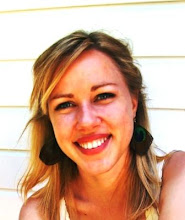I ask you: what is a dental spa? I don't pretend to know. I've never been to one. But it seems like an infamous case of euphemism to associate dentistry (which was and in many places still is a medically-sanctioned form of torture) with the relaxing atmosphere of a spa. Maybe it's not an exaggeration. Maybe they really do slather your face in a lavendar-infused pore-refining mask before they let loose on the root canal, but I have my doubts.
Anyway, I first saw this interesting word pairing on a billboard while waiting for my train at the Ballston metro station. (I had eleven minutes to kill, and you can only play so many rounds of Yahtzee against your cell phone). Even more absurd than the description of the dental spa was its chirpy little slogan: "We cater to cowards." How on earth, I wondered to myself, did that one slip by the focus groups? What business in its right mind invites you to call yourself a coward (even if it's true when it comes to your oral pain threshold)? What human failing is more censured than the white feather, the instinct for self-preservation run amuk?
It's true enough the courage is not as prized as it once was. Maybe that's for the best, as lots of nasty things have been done in the name of valor. This generation, at least, cannot be accused of inordinate bravado. We are a very pragmatic, self-compassionate group of people. We are willing to blink at the shortcuts that minimize our pain. But still, a remnant would agree with Winston Churchill that courage is the chief moral virtue, because by attaining it we secure all of her sister: honesty, charity, faith, perseverance, patience and generosity. All of these require us to thumb our noses as some very provocative, petulant fears. Personally, I have never had much patience with cowardice, except where it occurs in myself and goes by the alias of prudence.
The longer I stood there, waiting for the blinking footlights to herald the oncoming train, the more I was haunted by the inevitable conclusion that catering to the coward is all in a day's work for me. I fear financial insecurity, so I am only as generous as sociability requires. I fear disapproval, so my work ethic is based on avoiding censure. I fear exposure, so I deflect conversations that might uncover my human brokenness.
Cowardice is an alluring thing, because while you are at it, you feel pragmatic and reasonable. It is only afterward, when life becomes crippled and samll, that you see how your fears have backed you into some remote corner of your expansive, God-given inheritance. The subtlety of fear is that it claims to have cornered the market on reality. The debestating potential of what you fear looms so large and rational that nothing else seems safe, or even possible, but to heed its mandate.
But fear has a secret weakness. Its apparent inalienable truths are only phantoms. Every argument of cowardice begins with a "what if" clause. We do indeed have a choice, to live lives that are big and grand and bold, to win back our inheritance, to put our weight on tested promises instead of idle threats.
What does it mean? I hardly know. And frankly, catering to the coward is so comfortable (he's a pleasant houseguest, practically family, when undisturbed), that I hesitate to unseat him. But harder, stranger things have happened. And there is Help in time of need.
All Clear!
-
Of all the memories, experiences and things I brought back from Uganda, I
have managed not to bring Malaria with me. I was so happy I had to share it
with ...
15 years ago





